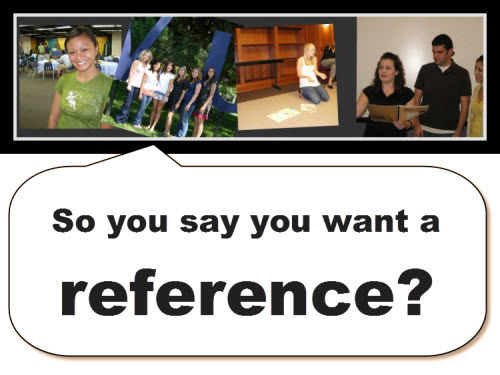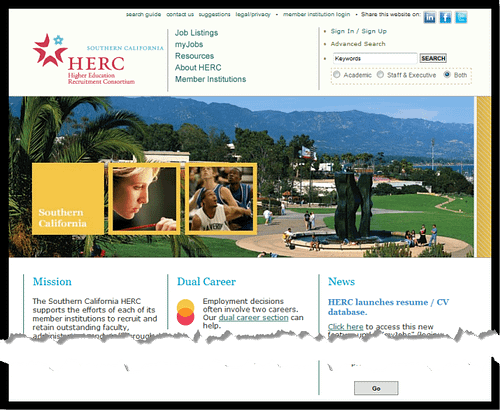A student once asked me if I would provide a reference for her on a job that was her dream opportunity. She had always wanted to be an interior decorator and now had a possibility of working directly for a woman who had a large design firm in Newport Beach and learn from her first-hand. The woman was quite nervous about hiring a recent grad, since she had been burned by more than a few in the past. However, she was impressed with the young woman and wanted to at least speak to someone who knew her well.
I ended up spending an hour and forty-five minutes on the phone with this woman, talking about her needs for the position and giving examples of ways that I had seen the candidate demonstrate those skills and character traits in my interactions with her over the years. My background in human resources was helpful as we discussed her business goals and need for specific talents related to her firm. She ended up taking the risk and the young woman got her dream job… and the chance to gain valuable experience she would take with her throughout her career.
You will be asked to provide references on a pretty regular basis, during college and beyond. People you ask to be a reference for you are the individuals who will influence the decision makers about whether you should get that internship, go on that missions trip, or be offered that new job.
BEFORE
I hope some of you will be reading this post before the time you need a reference, because thinking about the aspect of building solid relationships in advance will have a big payoff for you. Here are just some of the ways that I’m influenced about the nature of any reference I will give for a student:
- Do they show up on time and are fully present for classes?
- Do they take responsibility for their choices and actions?
- Are they curious?
- What type of energy and passion do they show for learning and for life?
- Are they respectful of the people around them?
- How have they demonstrated that they want to help others succeed?
- What is the level of quality of work that they submit for classes?
- Have they gotten involved in organizations that help them learn experientially (such as SIFE or ASB) in addition to taking classes?
- What level of maturity do they demonstrate on a consistent basis?
Along with any reference I provide for a student goes my reputation. I don’t take lightly the integrity that I think is crucial, anytime I talk about how effective I think someone will be in a given situation. I’ve been working, professionally in Orange County for over 15 years and have built a reputation for someone who knows quality people who will excel in a given job. Now is the time for you to start getting to know your professors and other professionals who can ultimately make a big difference in your ability to achieve your goals.
DURING
When you ask someone to be your reference, there are a series of questions you should answer for them in the process, so they can assess if it makes sense for them to be the person to represent you:
- What is it that you’re pursuing that requires you to get a reference? Talk about the opportunity and the organization associated with the possibility.
- What knowledge, skills, and attitudes are being sought?
- What do you have to offer in terms of the knowledge, skills, and attitudes? Be specific in your answers and provide an example of how you’ve demonstrated that you have acquired the competencies thus far.
Occasionally, you’ll be asked to provide a reference before you have had an opportunity to build strong relationships with your professors at school. The better you do at presenting yourself and at addressing the questions outlined above, the more likely they will be to believe you’ll be a good fit for the opportunity.
AFTER
Remember that once your reference has agreed to help you, does not mean that his or her possibilities of influencing whether or not you get the job are over.
- Follow up with hand-written thank you note.
‘But email is so much more convenient,’ you might argue. Yes, that is true. However, you want that person to be willing to go out of his or her way for you, so it makes sense that you’ll go to the extra effort to thank thank them properly and sincerely. Not many people write thank you notes today, so you will allow yourself to stand out from the crowd and be noticed as worth someone’s investment of time.
I recently wrote a letter for a student who was seeking a number of scholarship opportunities. She sent me a thank you card that not only communicated her appreciation, but also indicated that she was successful in obtaining her scholarships. She specified how much money I helped her save by my investment of time in writing her the letter. Her letter will make a nice addition to my tenure application in the next couple of years and you can bet that I’ll be more than happy to help her however I can as she pursues her dreams.


